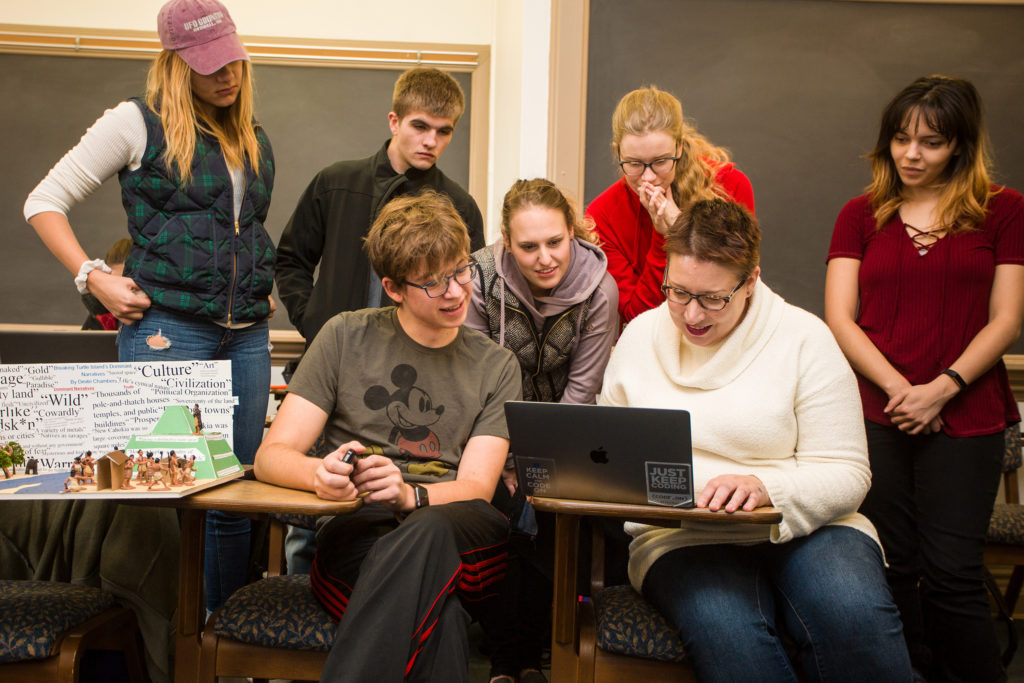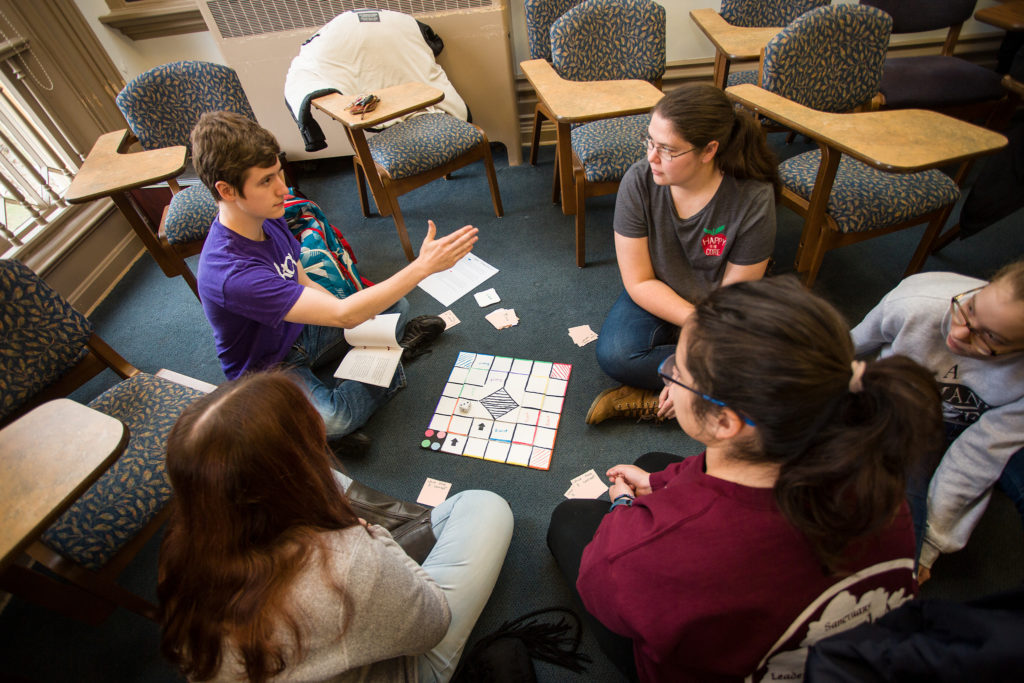Academia is Ableist
There’s a conversation happening on Twitter right now about accommodations in college classrooms for students with disabilities. Many people have articulated beautifully why accommodations are not just a matter of law, but of justice, ethics, and professional responsibility. But there’s one more big piece of this that I think we’re missing.
Institutions of higher education in the United States are inherently ableist. The ways in which we typically assess student learning are predicated on being able-bodied and neurotypical.

It’s not so long since society threw people in psychiatric wards, state-run homes, and sanitoriums for the least expression of common ailments like mild depression. It’s not so long since the state sterilized people after deeming them “feeble-minded”. It’s not so long since doctors labeled a range of symptoms in women that today we might understand as anxiety, PTSD, or autism as “hysteria.” (I actually saw someone throw that term today, aimed at women who were arguing that Al Franken did the right thing when he stepped down.) We still live in a society where people who aren’t white are charged with being unintelligent.
Our colleges and universities are products of that same society. Long-form, written argumentation (using a specific linguistic mode) has long been held up as the only way students can demonstrate they understand literature, history, or political science (to grab three disciplines off the top of my head). But it’s simply one way. Similarly, it has long been the assumption in institutions of higher ed that students must be able to physically participate in lab experiments if they want to understand scientific endeavors. Why? Too often we don’t question that colleges and universities were built for able-bodied people without neurological problems or mental illness, and we repeat the assessment methods of the past.
Our colleges and universities are expressions of what wealthy people once decided constituted a proper education. That education excluded women, people of color, Indigenous people, gay people, Jewish people, poor people, immigrants, and more at various points in time. We are still working toward institutions of higher ed that don’t carry the weight of racism, classism, misogyny, homophobia, and transphobia (and that effort is vastly, unevenly distributed). But we seem hesitant to understand that our institutions are ableist in their very design too.

I’m a historian. I write articles and books (and blog posts and tweets). But my students do not have to be able to construct a written argument in order to show me what they have learned. They can give a presentation, or record a short video, or make a zine, or create art – these are all excellent means by which I can assess their historical understanding. Because historians don’t just communicate in articles and books – we go to conferences and we perform orally; we sit together in roundtables; we discuss ideas over coffee. Why are we so hesitant to extend to our students the same consideration we extend to ourselves? (There is another conversation to have here about the demands of getting jobs and tenure, and how much those goals depend upon writing, which is, again, ableist, but I’ll get to that another day.)
My job is not to insist that mechanisms of assessment that work for able-bodied, neurotypical people are the only methods of assessment I should use at all. My job is to meet the bright young (and sometimes older) minds of my students where they’re at, and work with them to allow them to express their fierce intelligence in ways that show them at their best. I’d argue that’s all of our jobs. Otherwise we are missing out on the thoughtful, creative, and analytical skills of a whole host of people who are owed a hell of a lot better.
2 thoughts on “Academia is Ableist”
I work in an institution whose mission is to serve those students who have sometimes failed to succeed in traditional higher ed. The institution awards credit based on multiple choice exams and projects. The 1:1 support provided for students with weak writing and reading skills can help them complete projects, but the tests are another issue. This is a complex issue, as it calls into question the importance of mastering particular forms of communication. I appreciate very much that you always turn the kaleidescope and ask those around you to look anew at many elements of learning, education and life that we take for granted.
Thanks so much, Elise! So lovely to hear from you!